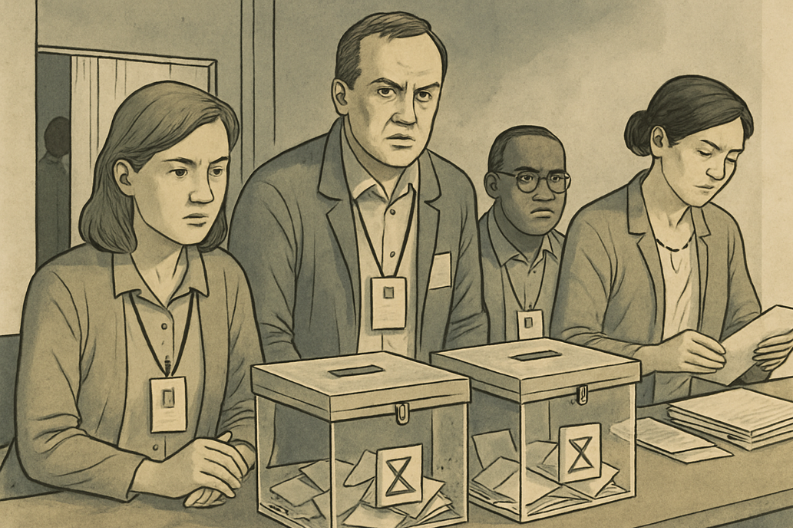Rahul Gandhi’s vote theft claims have sparked a political storm after he alleged large-scale fraud in the 2024 Lok Sabha elections, including “vote chori” in Bengaluru. His remarks quickly triggered strong reactions from election officials in several states.
On Thursday, Karnataka’s Chief Electoral Officer (CEO) V Anbukkumar wrote to Gandhi. He asked Gandhi to file a sworn declaration naming the voters he believes were wrongly listed. With such evidence, authorities could begin a proper probe. Soon after, CEOs in Maharashtra and Haryana sent similar letters when Gandhi mentioned irregularities in those states.
The Uttar Pradesh CEO directly rejected Gandhi’s claim that two voters from Bengaluru also appeared on their rolls. This response added more fuel to the growing debate.
Meanwhile, the Election Commission (EC) posted a statement on X. It reminded Gandhi that serious charges require proof. The EC directed him to return a signed declaration by evening and warned him not to spread misleading claims.
At a press conference in Delhi, Gandhi alleged that Bengaluru’s Mahadevapura Assembly segment, part of Bangalore Central, contained over 1 lakh suspicious entries. He said Congress workers checked the list of 6.5 lakh voters and found duplicate names, incomplete addresses, and invalid photos. Gandhi stressed that fair elections require accurate voter rolls.
Karnataka’s CEO countered that officials prepare rolls transparently and share them with all political parties. He emphasized that questions about results should go to the High Court through election petitions, not only press conferences. He also reminded Gandhi that making a false declaration under Section 31 of the Representation of the People Act can lead to a year in jail or a fine. Additionally, Section 227 of the Bharatiya Nyaya Sanhita allows harsher penalties for false evidence.
At the same time, Congress leaders announced plans to meet the Karnataka CEO. They intend to submit a detailed memorandum on their concerns. Gandhi’s charge of voters registered in multiple states also drew scrutiny. The UP CEO said their records showed no such names.
Furthermore, EC officials noted that Gandhi’s accusations may indirectly support their ongoing Special Intensive Revision of electoral rolls. They explained that in areas with unclear addresses, officials often use “notional addresses,” a practice followed for years.
As the controversy deepens, electoral integrity remains at the center of the discussion. Rahul Gandhi’s Vote Theft Claims highlight the urgent need for accurate rolls and fair procedures to safeguard India’s democracy. The strong pushback from officials shows how seriously they treat such allegations and reinforces the principle that every vote must count.



